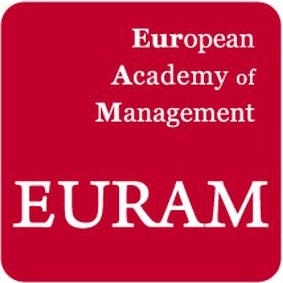

Values
Inclusivity and Democracy: EURAM is an open, democratic, diverse, and inclusive community of engaged and proactive management scholars.
Respectful Dialogue and Collaboration: EURAM promotes respectful and constructive dialogues among all members, fostering cooperation and supportive behaviors, while recognizing that competition drives improvement.
Support and Development: EURAM aims to build developmental and supportive relationships among all members, with special attention to doctoral students and early-career colleagues.
Integrity and Fairness: EURAM promotes transparency, equity, honesty, and fairness in its interactions.
Recognition of Quality: EURAM values quality in various forms, recognizing and supporting exceptional contributions through awards and prizes.
Rigorous and Relevant Research and Teaching: EURAM encourages rigorous and relevant research and teaching aimed at creating a positive impact on organizations, society, and the natural environment.
Humanistic and Responsible Scholarship: EURAM is home to humanistic and responsible scholarship, welcoming a wide range of perspectives, theories, and methodologies.
Mission
The European Academy of Management (EURAM) is a professional community of engaged management scholars and reflective practitioners - open, inclusive, international and cross-cultural.
EURAM places a strong emphasis on multidisciplinary theoretical perspectives and methodological pluralism and promotes critical examinations of the historical and philosophical roots of management theory and praxis.
EURAM aims at enhancing the quality of research, improving its relevance for responsible and effective practice and contribute to the social and political discourse on management.
Goals
- To facilitate the continued evolution of an open, inclusive international and cross-cultural EURAM community of engaged scholars;
- To support scholars in designing, producing and disseminating higher quality and impactful new knowledge at each stage of their career;
- To influence the development of management education;
- To provide platforms and facilitate networks for the dialogue between scholars, reflective practitioners and policy makers.


